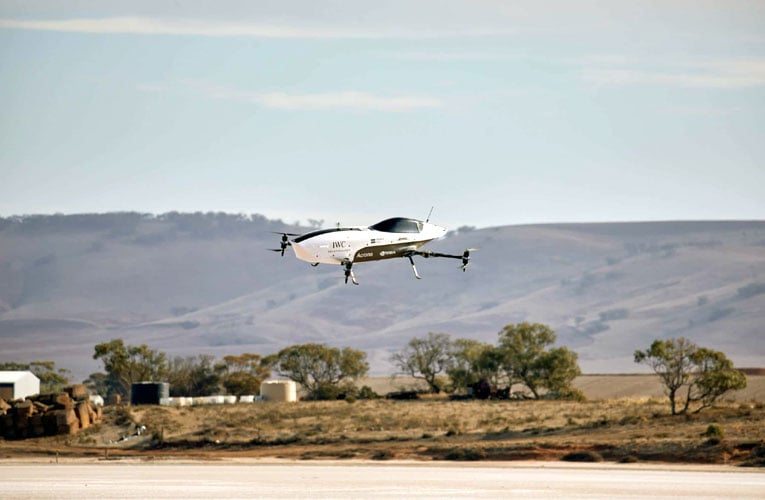
Alauda Mk3, the remotely-piloted eVTOL multicopter from Airspeeder has successfully made its first flight in the South Australian desert. During the entire flight, it was controlled remotely and the country's Civil Aviation Safety Authority was present there for observation. The full-sized remotely-operated electric vertical take-off and landing vehicle (eVTOL), Airspeeder Alauda Mk3 features never seen before technologies and engineering elements and is built around a carbon-fiber tub for a strong yet lightweight fuselage.
Additionally, it features a rotor blade on each of its corners. The blades give this multi-copter a far greater turning ability than a traditional helicopter or a fixed-wing aircraft. The multicopter is equipped with LIDAR & Radar collision avoidance systems that create a virtual forcefield around the flying car and ensure close but ultimately safe racing.
The unpiloted Mk3 weighs 130 Kgs and can go from zero to 62 mph in 2.8 seconds as well as climb to 500 meters. It has a removable battery, which its pit crews have been able to replace in under 20 seconds. The Mk3 has a thrust-to-weight ratio of 3.5, exceeding that of an F-15E Strike Eagle, which has a ratio of 1.2. The rapid hairpin turning potential achieved through an octocopter format has been compared to that of a Formula 1 car, generating up to 5Gs, with the added capability to maneuver vertically.
According to Airspeeder’s website, the “successful execution of these flights means that uncrewed electric flying car Grand Prixs will take place in 2021 at three soon-to-be-revealed international locations.” Airspeeder will kick off its remote racing series this year before starting piloted racing in 2022.

